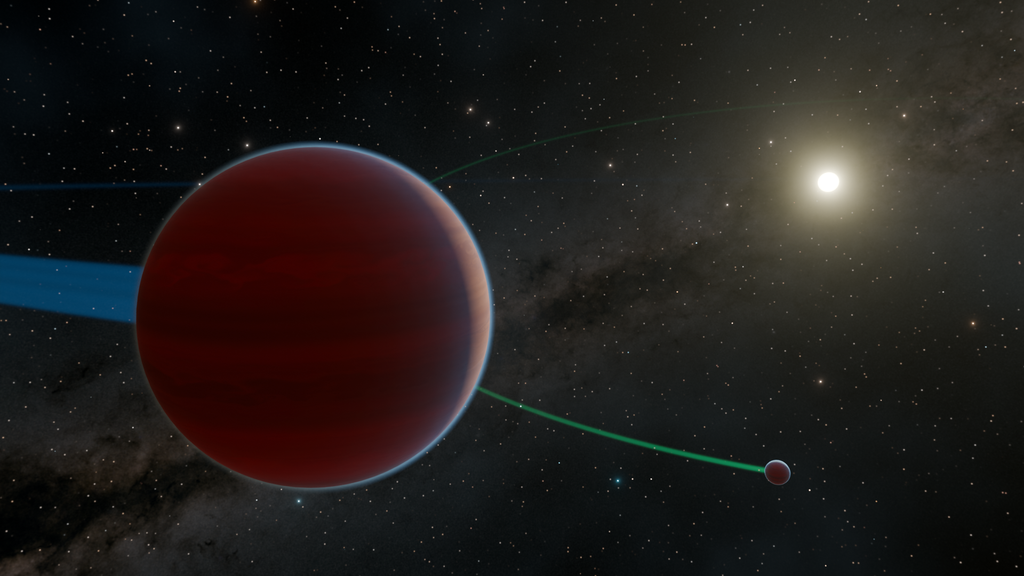HOUSTON – An overnight interruption in their preparations will mean that Mission Specialists Mike Foreman and Randy Bresnik will head out of the station’s hatch on the second spacewalk of the STS-129 mission a little later than planned.
The International Space Station again experienced a false depressurization alarm that originated from the new Poisk Mini-Research Module overnight. The station’s automatic response resulted in a shutdown of ventilation systems, which led to two smoke detectors issuing a false alarm, as well – one in the Columbus European laboratory and one in the Quest airlock, where Foreman and Bresnik were camping out as part of the pre-breathe protocol that precedes spacewalks.
The alarm sounded at 8:53 p.m., more than two hours after Atlantis’ crew went to sleep for the night. Emergency procedures required the spacewalkers to move out of the airlock while teams on the ground verified that the alarms were false. Although flight controllers in Houston were quickly able to determine that was the case, it was decided that it would take too long to get the airlock back in its normal configuration for it to be feasible for Bresnik and Foreman to spend the night there. Instead, they were instructed to stop their pre-breathe protocol and sleep elsewhere.
In order to flush nitrogen from their blood steams – the job their campout in Quest would have accomplished – Bresnik and Foreman will instead be going through an exercise protocol, which requires them to spend 10 minutes on the station’s exercise bike while breathing pure oxygen from an air mask. They’ll spend a total of two hours and 20 minutes breathing the pure oxygen, which, when combined with the exercise, will help them avoid getting decompression sickness when they exit the station.
They are scheduled to exit the station at 8:38 a.m. With 30 extra minutes in their sleep period to make up for sleep lost due to the alarms, the crew’s wakeup call came today at 2:58 a.m. The wakeup song, “Voyage to Atlantis” by The Isley Brothers, was played for Mission Specialist Robert Satcher Jr.
Even though they are starting late, the spacewalkers plan to get all the scheduled tasks complete during what will now be a six-hour-long spacewalk. That is 30 minutes shorter than was originally planned, which means that they will not have extra time in the schedule for get ahead work.
Foreman and Bresnik still intend to install the Grappling Adaptor to On-Orbit Railing assembly (or GATOR) on the Columbus module, relocate a floating potential measurement unit to the P1 truss segment, set up a cargo attachment system on the zenith face of the S3 truss segment and install a wireless video system external transceiver assembly.
The other major task on the crew’s agenda today is the transfer of the second cargo pallet delivered by Atlantis to the space station – EXPRESS Logistics Carrier 2, or ELC2. That work is scheduled to get underway just before 6:45 a.m. The pallet contains 9,900 pounds of spare equipment for the station, including a control moment gyroscope, a nitrogen tank assembly, a pump module, a high pressure gas tank, a cargo transport container that holds 10 remote power control modules and a reel assembly for the station’s mobile transporter.
ELC2 will be installed on the S3 segment of the station’s truss by the space station’s robotic arm, which will be driven by Mission Specialists Leland Melvin and Nicole Stott.
The next shuttle status report will be issued at the end of the crew’s workday or earlier if events warrant. The crew is due to go to sleep just before 6 p.m.
– end –
text-only version of this release
NASA press releases and other information are available automatically by sending a blank e-mail message to hqnews-subscribe@mediaservices.nasa.gov. To unsubscribe from this mailing list, send a blank e-mail message to hqnews-unsubscribe@mediaservices.nasa.gov.
Back to NASA Newsroom | Back to NASA Homepage
3:30 a.m. CST Saturday, Nov. 21, 2009
Mission Control Center, Houston, Texas























